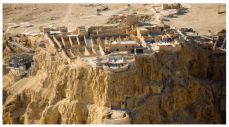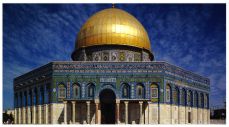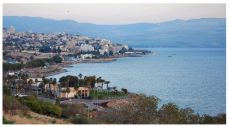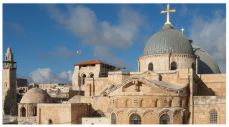Israel is a small, narrow, semi-arid country on the southeastern coastline of the Mediterranean Sea. It entered history some 35 centuries ago when the Jewish people forsook its nomadic way of life, settled in the Land and became a nation. Israel is a land and a people. The history of the Jewish people, and its roots in the Land of Israel, spans some 35 centuries. In this land, its cultural, national and religious identity was formed; here, its physical presence has been maintained unbroken throughout the centuries, even after the majority was forced into exile. With the establishment of the State of Israel in 1948, Jewish independence, lost almost 2,000 years earlier, was renewed.
At a Glance
-
Map -
Capital :Jerusalem
Language : Hebrew and Arabic , English
Currency : ISL , New Israeli Sheqel (NIS)
Dialing code:+972
Location: Israel is located in the Middle East, along the eastern coastline of the Mediterranean Sea, bordered by Lebanon, Syria, Jordan and Egypt. It lies at the junction of three continents: Europe, Asia and Africa
Electricity:230 volts AC, 50Hz. Plugs with three round pins are standard
Things To Do:
*Jerusalem Jerusalem is Israel's official capital city and is sacred to three major religions: Christianity, Judaism and Islam. The ancient Old City is encircled by imposing stone walls that date to the Ottoman period and contain within it such holy sites as the Western Wall - the most visited site in Israel and one holy to Jews - Dome of the Rock and Church of the Holy
*The Dead See The lowest spot on the face of the earth, and a natural health spa - the Dead Sea is one site you don't want to miss!! is a salt lake whose banks are more than 400m below sea level, the lowest point on dry land.
*Tel – Aviv Tel Aviv, often called “the city that never stops,” was the first modern Jewish city built in Israel, and is the country’s economic and cultural center. It is a lively, active city with entertainment, culture and art, festivals, and a rich night life.
*Haifa Israel’s third largest city and one of its prettiest, Haifa is a multi-faceted city with several unique characteristics making it an attractive place to visit.
*The Galilee The Galilee is a mountainous region in Israel’s north, and is divided into two main parts - the Upper Galilee to the north and the Lower Galilee to the south
*Sea of Galilee The Kineret, or Sea of Galilee, is Israel’s largest fresh water reservoir, and is also the country’s largest and most important source of drinking water
*Netanya Netanya is a lively seacoast town situated on the Sharon coastal plain, and a center for tourism that attracts thousands of visitors each year. The lovely beaches that extend along its entire length, its numerous vacation facilities. The Netanya coastline spans 13.5 kilometers, including dedicated beaches with breakwaters, diving club, floating pontoons, water slides and more.
*Nazareth Nazareth is a city of religion and faith, of spirituality and holiness, but also a city with a rich history, fascinating archeology, modern culture and Middle Eastern charm.
*Eilat Eilat, on the Red Sea, is Israel's seaside resort par excellence. If visits to the holy sites in Jerusalem and elsewhere leave you with a weighty sense of history, blow it all off here, where suntanning, watersports and swimming with dolphins is de rigueur.
*Massada Massada is one of the most exciting and frequently-toured places in Israel, and relates a story of perseverance and power, faith and surrender, ambitions, and a tragic end. Massada is a place where battles were waged with rocks and flaming arrows, as well as battles of the human spirit.
*Bethlehem A short drive south of Jerusalem into the Palestinian Territory is Bethlehem. Christians believe Bethlehem to be the birthplace of Jesus of Nazareth. The town is inhabited by one of the oldest Christian communities in the world.
When to Go
Mediterranean, with a pleasant spring (April and May) and autumn (September and October). Winters (around November to March) in the north can be cool. Occasional light rain in winter is possible, particularly in Jerusalem, though recent years have seen insufficient rain. Snow is rare. Summers months providing loads of sunshine and scorching temperatures that can reach 40ºC, June to August usually sees the highest temperatures. The Red Sea resort of Eilat has a good climate for beach holidays all year round. It's important to note that travel will be affected during religious holidays, with the majority of shops, businesses and public transport shutting down for major Jewish holidays. Israel offers a range of things to do in any weather, from skiing in the highlands to enjoying the sun near the Red Sea, so no matter what time you choose to go, it's a great place to travel all year round.






